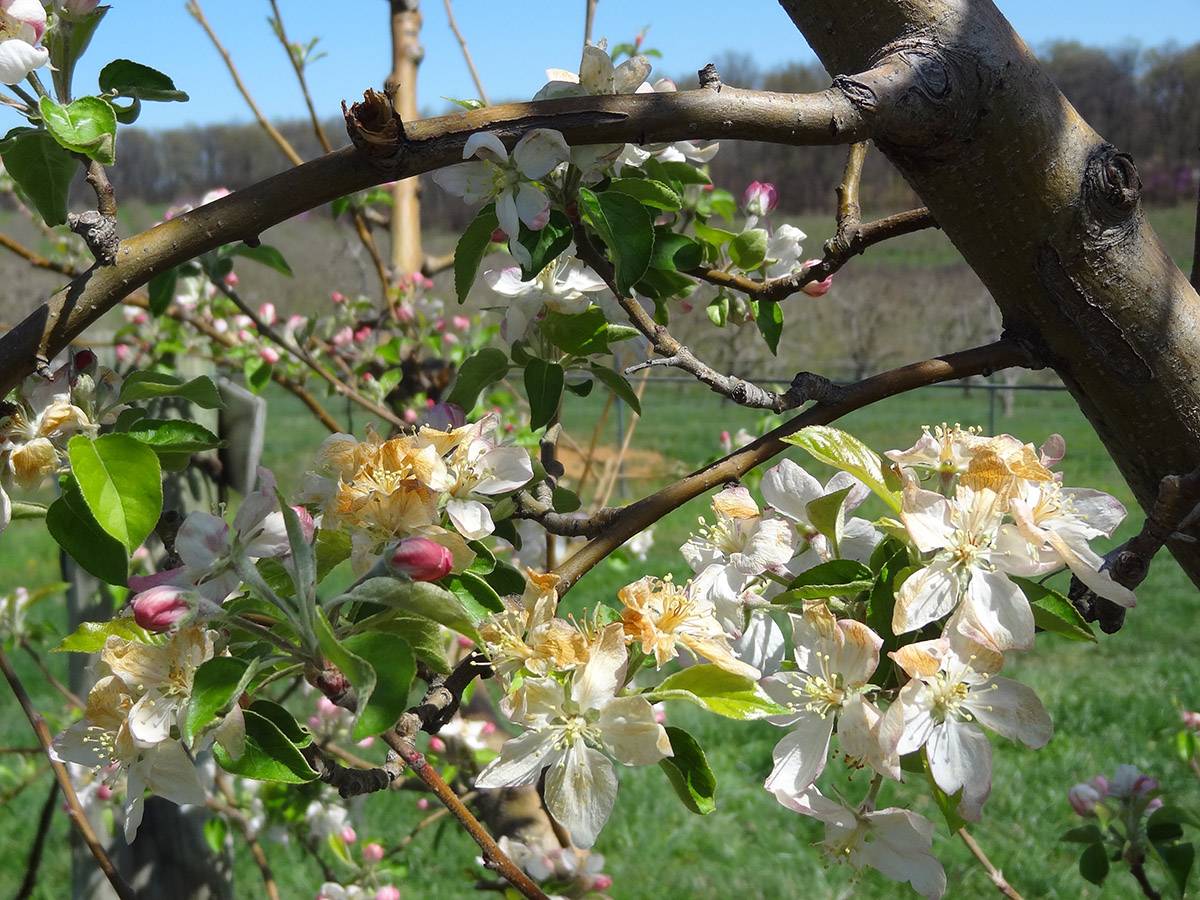New tool gives apple farms hope in fight against spring freezes
By Blaine Friedlander

This February’s warm weather is nice in the Northeast, but apple farmers may pay a price if winter roars back. To help growers assess precarious temperatures in turbulent springs, the Cornell Institute for Climate Smart Solutions has developed a new Apple Freeze Risk decision tool.
“I think the warm weather we’re seeing this week may push the apple trees into vulnerable stages,” said Art DeGaetano, professor of earth and atmospheric sciences and director of Cornell’s Northeast Regional Climate Center.
Apples are an important cog in New York’s agriculture industry, which produces over 29 million bushels of apples annually, employing over 10,000 people directly and 7,500 indirectly.
Apple trees need dormancy and cold weather so that springtime buds develop properly. When early spring temperatures rise consistently above the low 40 degree mark, the trees get ready to bud, said DeGaetano.
Through their phenological stages in warming weather, the apple trees develop silver tips, green tips and then bloom.
“They become less and less tolerant of cold, and if a freeze hits after a warm spell, that’s when apple producers begin to see bud damage – and that takes an economic toll,” said DeGaetano, who with Rick Moore, research support specialist, built the new risk-assessment tool. Development of the tool was made possible thanks to Federal Capacity Funds and funding from the New World Foundation.
The Apple Freeze Risk tool shows minimum temperatures for the most recent 30 days, provides a 6-day temperature forecast and shows the current stage of development in tree varieties. Apple trees are currently dormant, and only a sustained period of 25 below zero temperatures can damage this season’s crop. But as days warm, the buds’ tolerance for freezing lessens.
“The benefit of this tool is that a farmer can access information about a specific location anywhere in the Northeast, and can get detail to within a 2.5-mile grid of their orchard,” said Allison Chatrchyan, director of the Cornell Institute for Climate Smart Solutions. The institute established the Cornell Climate Smart Farming (CSF) program, which is developing tools to support individualized, real-time and data-driven management, through what’s known as “Digital Agriculture”.
“With climate change already occurring, our winters are getting warmer, and farmers are asking us for specific tools and information about what they can do to reduce the risks on their farm, including from freezes,” Chatrchyan said. “The apple tool was built based on stakeholder input, and with the help of our NYS CSF Extension Team, which is training farmers about climate risk and adaptation.”
One likely user of this new tool will be Mark Doyle, manager of Fishkill Farms in Hopewell Junction, New York, which grows apples, peaches, nectarines, currants and cherries. He is concerned about early warm weather and freezing weather afterward, as he examines factors such as temperature inversions (warm air above cold air) and whether to employ either mechanical or thermal methods to heat the orchard on frigid nights.
Said Doyle: “Along with other factors, I will be looking at this tool to understand the weather situation in front of me and the freeze risk facing our apple trees.”
Media Contact
Get Cornell news delivered right to your inbox.
Subscribe